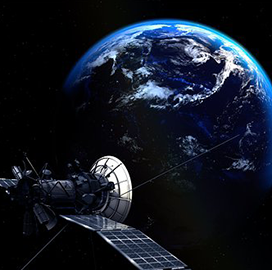
Research satellite
NASA to Launch Spacecraft to Study Planktons in Ocean, Aerosols in Atmosphere
NASA will send its Plankton, Aerosol, Cloud, ocean Ecosystem spacecraft into orbit on Feb. 6 from Cape Canaveral’s Space Launch Complex in Florida.
The PACE spacecraft will carry three instruments to study the oceans, clouds and aerosols in the atmosphere. Its goal is to better understand phytoplankton on the ocean surface, including differentiating among phytoplankton species. The satellite will track desert dust, sea spray and smoke, among other aerosols.
The project, with a total cost of $964 million, including reserves, has experienced several budget cuts in recent years, including various attempts at canceling the initiative, SpaceNews reported.
In a briefing on the mission held on Sunday, Karen St. Germain, director of NASA’s Earth science division, said PACE will help in further understanding how oceans work and how they impact the broader Earth system and climate change.
The U.S. space agency has been working to better understand the changing climate. In August 2023, it entered into a partnership with Rocket Lab for the use of the Electron rocket to deliver satellites, enabling scientists to create climate and ice models and forecast the impact of global warming on ice sheet melt and sea level.

Category: Space




